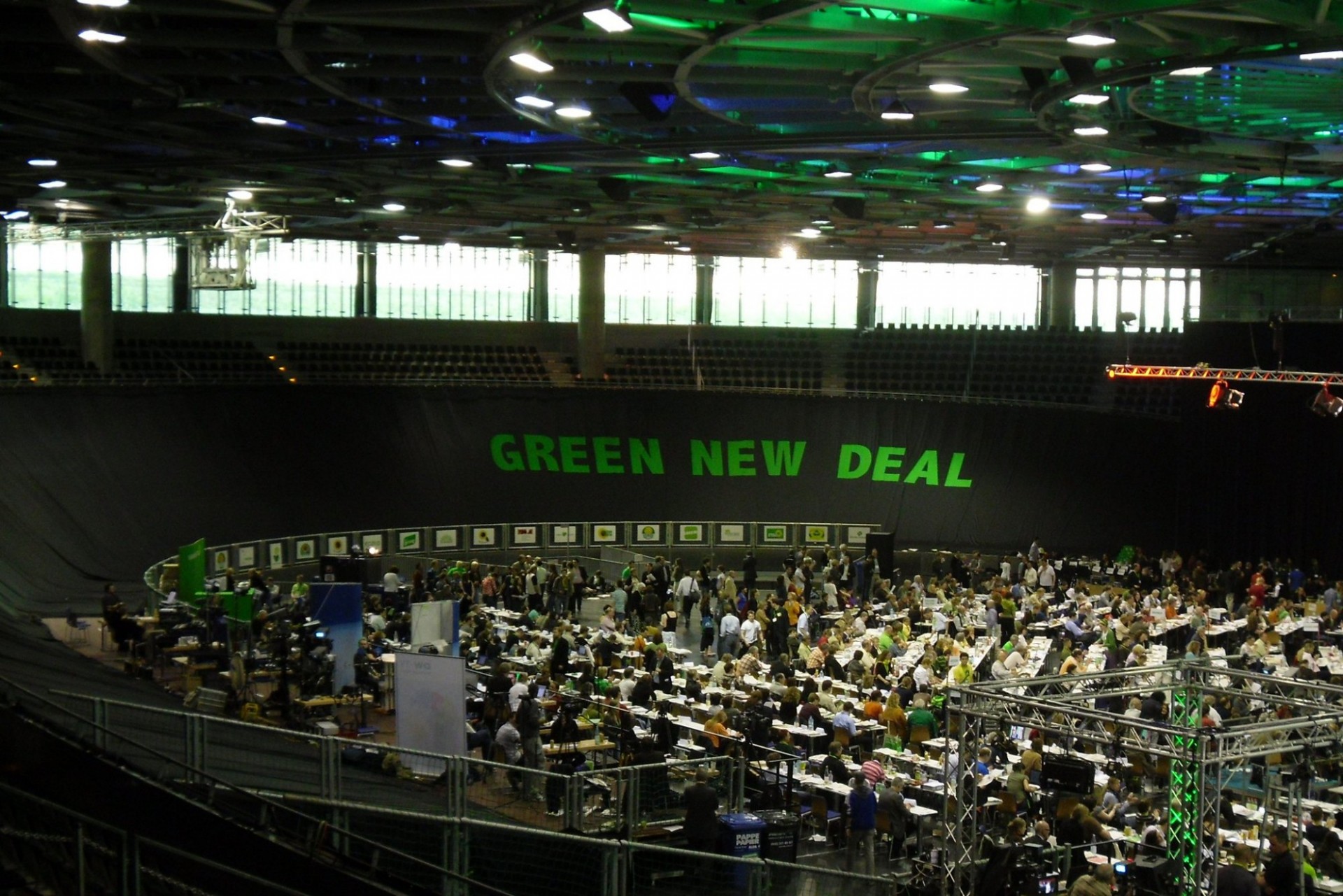C+S 2021 students are blogging about topics that interest them for Applications in Climate and Society, a core spring class.
In 2019, the Green New Deal resolution laid out a framework that could change our country. With our citizens and climate at the center, the GND calls for a “10-year national mobilization” of resources that would strengthen the economy, eliminate pollution, repair our built environment, and more.
I know what you might be thinking, it’s 2021 and the government mobilized resources for none of these things. Because the GND is a nonbinding resolution, its 14 pages call for the general support of its contents and sentiments, should it be passed. While this might not sound promising as a regulatory force for change, I would argue that the GND was and will continue to be a cultural force that just might change the framework of our country... but not exactly as planned.
Shortly after the debut of the GND, citizens young and old took action. GND supporters included activists, mayors, representatives, Nobel laureates, governors, senators, and most ironically, CEOs. We’re talking CEOs of the very financial institutions with a history of funding fossil fuel and resource-intensive ventures. So, did those in charge of big bad banks have a change of heart, a clean, green marketing plan, or a prophetic strategy? I’ll let you decide.
Shortly after the GND’s announcement, the CEO of Blackrock, Larry Fink, released his famous Letter to CEOs, in which he declared climate change “cannot be solved without a coordinated, international response from governments, aligned with the goals of the Paris Agreement.” From the CEOs of large investment banks to the analysts of boutique hedge funds, Fink’s words had a rippling effect on the goals of investments.
Investors, eager to flaunt their socially responsible practices, began publicizing deals with sustainable companies. In 2020, Blackstone invested $200 million in the environmentally-conscious oat milk company, Oatly, and received backlash for implying their partnership would make up for Blackstone’s harmful past. This poses the question: How do large financial institutions make up for their environmentally disastrous past if not through investments like this?
A loaded question, I know. The answer lies right where we started, the cultural turning point that is the GND.
In early 2019, the regulators of banks big and small and the Securities and Exchange Commission (SEC) likewise began buzzing about the sudden rise in climate-conscious investment strategies. Commissioners poked at these so-called metrics for environmental, social, and governance (ESG) valuations that everyone started talking about. Today, the SEC is revisiting disclosure requirements to integrate ESG metrics such as carbon footprint or water usage into obligatory investment reporting.
Thanks to the SEC, big banks are on the path to being socially responsible investors for good. Thanks to the CEOs, investors everywhere have their sights set on opportunities to fund the companies with clean supply chains. Thanks to the GND, citizens all over the nation are cultivating their own innovative solutions to this climate crisis. For better or for worse, financial institutions hold significant influence over the success of emerging markets; and while environmentally friendly companies have been emerging for decades, now is their time to financially shine.
So, did you figure it out? Is this a financial revolution for the health of the planet or is it all just marketing? Or does it matter at all? What started with the GND establishing the legislative changes necessary for a cleaner planet accidentally turned into a capitalist cue to start planning for the future of investing and organizing the last dance of capitalism as we know it.

